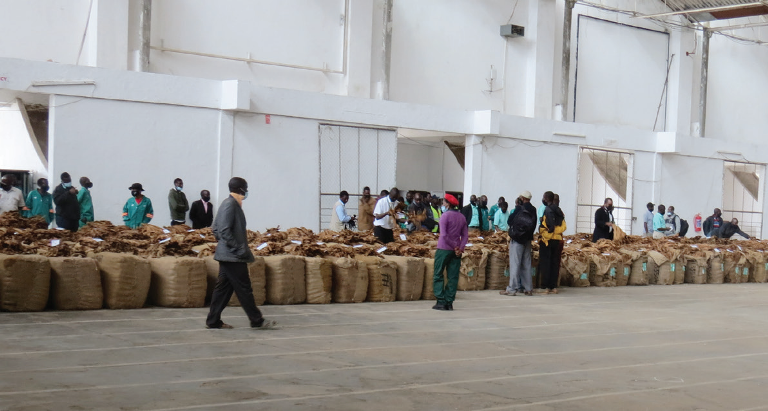Tama Farmers Trust has admitted that some provisions under tobacco contract farming are ‘unfriendly’ to farmers, saying the trust hopes stakeholders, including the regulator, will improve on farmer friendliness contracts administration.
Tama chief executive officer Nixon Lita said this in a written response that in view of revelation by the Competition and Fair Trading Commission (CFTC) indicating that some contract tobacco farmers are being subjected to unfair trading practices.
Low volumes marred the opening of Limbe Auction Floors last week
Under Contract System, tobacco buyers offer farmers necessary inputs, extension services and loans and also provide direct facilitation of growers by processors and buyers.
But, according to the CFTC, contrary to provision of the Consumer Protection Act which, among others, stipulates that contracts must be drafted in terms which are clear and understandable and signed by both parties, most contracts are in English and use difficult legal language which the farmers cannot understand and the majority of farmers did not sign contracts with buyers.
The findings have further established that loan inputs prices are not indicated and loans are quoted in foreign currency (dollars), not in local currency, and that some of the mandatory inputs supplied to farmers are deemed not necessary since they can be sourced locally and cheaply and priced, and are way above prevailing market price.
But Lita, while indicating that contract farming is not mandatory in tobacco, and that some provisions are in order, indicated that there is an observation that growers can do without some inputs, or that some inputs can be produced locally.
“As Tama we are working with the contracting companies with TC [Tobacco Commission] supervision to ensure that sourcing of some inputs is localised, but at the same time quality should not be compromised.
“By localising the sourcing, it means costs for such inputs will go down and the same will positively impact on loan volume per hectare from farmers’ perspective,” he said.
He argued that some inputs, especially those to do with environmental protection, farmers safety from hazardous chemicals and others relating to creating a safer working environment can be produced locally by the same farmers and inspected for certification. These include items like bamboo baskets for tobacco harvesting to avoid any plastic material contamination and tree seedlings to counter deforestation.
On his part, TC spokesperson Telephorus Chigwenembe said the commission made similar observations, hence the proposed tobacco law which seeks to promote a win-win situation for both the grower and the buyer.
He said: “It is true that some practices in the industry disadvantage tobacco growers, most of whom are voiceless. To address some of these concerns, we have made sure that provisions in the proposed new law governing the tobacco industry directly address these issues.
“The new law will ensure growers have the right to choose which input loans they should get as opposed to the current practice. In addition, a contracted farmer will be free to sell their leaf to another buyer if disagreements over prices are not resolved after a set number of attempts unlike the current state of affairs.”
CFTC spokesperson Innocent Helema has since indicated that the commission intensified efforts to engage companies to review the contracts.
Currently, about 80 percent of the country’s tobacco is produced and sold on contract while the remaining 20 percent is sold under the auction system.
The post Tama punches holes in contract farming appeared first on The Nation Online.
 Moni Malawi
Moni Malawi 
